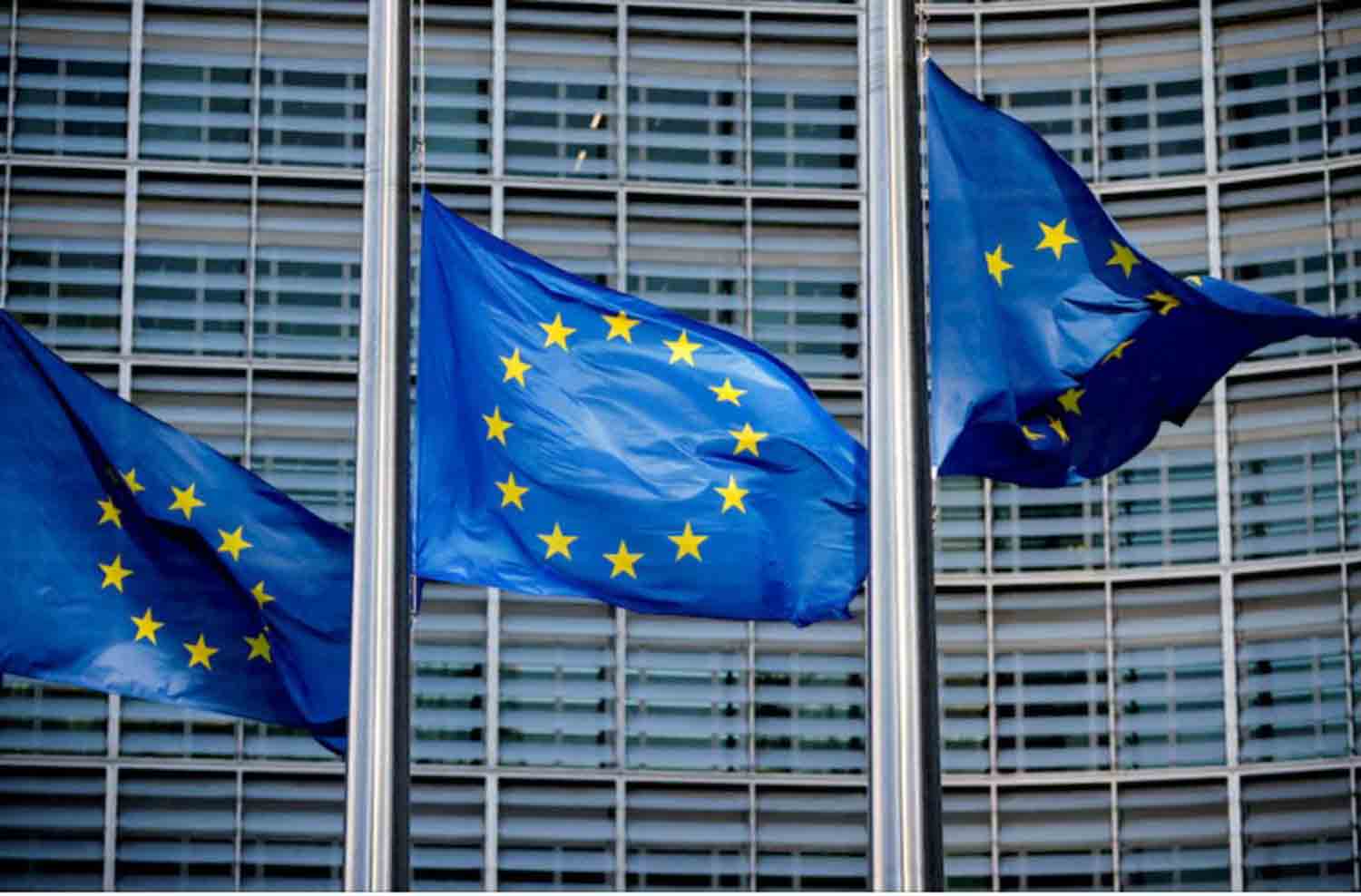European Union member states are preparing to present a cohesive response in the coming days to U.S. President Donald Trump‘s tariffs, with plans to approve initial targeted countermeasures affecting up to $28 billion worth of U.S. imports, ranging from dental floss to diamonds.
This action would align the EU with China and Canada in implementing retaliatory tariffs against the United States, marking an early escalation that raises concerns about a potential global trade war. Such a conflict could lead to increased prices for billions of consumers and risk pushing economies worldwide into recession.
The 27-nation bloc is currently facing 25% import tariffs on steel, aluminum, and cars, along with “reciprocal” tariffs of 20% on nearly all other goods starting Wednesday. Trump’s tariffs impact approximately 70% of the EU’s exports to the U.S., which totaled 532 billion euros ($585 billion) last year, with additional duties on copper, pharmaceuticals, semiconductors, and timber anticipated.
The European Commission, responsible for coordinating EU trade policy, is expected to present a list of U.S. products for additional duties to member states late on Monday, specifically in response to Trump’s steel and aluminum tariffs rather than implementing broader reciprocal tariffs.
The proposed list is likely to include U.S. meat, cereals, wine, wood, clothing, as well as items like chewing gum, dental floss, vacuum cleaners, and toilet paper. One product that has garnered significant attention and highlighted divisions within the bloc is bourbon. The Commission has suggested a 50% tariff on bourbon, which has led Trump to threaten a 200% counter-tariff on EU alcoholic beverages if the EU proceeds with its plan.
Wine exporters from France and Italy have voiced their concerns. The EU, which heavily depends on free trade, is eager to ensure broad support for any retaliatory measures to maintain pressure on Trump to engage in negotiations.
On Monday, Luxembourg will host the first EU-wide political meeting since Trump’s announcement of extensive tariffs. Trade ministers from the 27 EU member states will discuss the implications of these tariffs and strategize on the best course of action.
EU diplomats indicated that the primary goal of the meeting is to present a unified stance advocating for negotiations with Washington aimed at lifting the tariffs, while also preparing to implement countermeasures if negotiations do not succeed.
One EU diplomat remarked, “Our greatest concern following Brexit was the potential for bilateral agreements that could fracture our unity. However, after three to four years of negotiations, that did not materialize. While the current situation is different, there is a clear interest in maintaining a cohesive commercial policy.”
In terms of counter-tariffs, EU member states hold varying opinions on the appropriate response. France has proposed that the EU develop a comprehensive package that extends beyond tariffs, with President Emmanuel Macron suggesting that European firms should halt investments in the U.S. until the situation is clarified.
Ireland, which sends nearly a third of its exports to the U.S., has advocated for a “considered and measured” approach, while Italy, the EU’s third-largest exporter to the U.S., has raised doubts about whether the EU should retaliate at all.
“It’s a challenging balance to strike. The measures must be firm enough to encourage the U.S. to engage in dialogue, yet not so severe as to provoke further escalation,” noted one EU diplomat. So far, discussions with Washington have not yielded positive results. EU trade chief Maros Sefcovic characterized his two-hour conversation with U.S. officials on Friday as “frank,” emphasizing that the U.S. tariffs are “damaging and unjustified.”
The proposed EU counter-tariffs are set to be voted on Wednesday, and they are expected to pass unless an improbable qualified majority of 15 EU member states, representing 65% of the EU’s population, votes against them.
The implementation will occur in two phases: a partial rollout on April 15, followed by the remainder a month later.
Additionally, Commission President Ursula von der Leyen will engage in separate talks on Monday and Tuesday with leaders from the steel, automotive, and pharmaceutical industries to evaluate the effects of the tariffs and decide on the next steps. ($1 = 0.9102 euros)
Discover more from Defence Talks | Defense News Hub, Military Updates, Security Insights
Subscribe to get the latest posts sent to your email.





